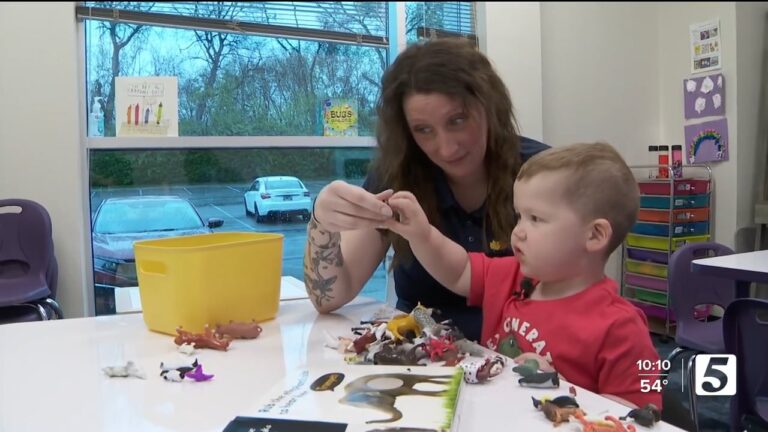Table of Contents
How Can Aging Caregivers of ASD Loved One’s Plan for the Future While Facing These Challenges?
In recent years, the role of aging caregivers in the autism community has become increasingly important for several reasons. These reasons include the rising prevalence of autism spectrum disorder (ASD) and increased awareness about the condition.
Unfortunately, these dedicated aging caregivers often face distinct emotional and physical challenges when addressing the needs of their loved ones with ASD, including how they will plan for their loved one’s future, in addition to managing their own needs.
Furthermore, when considering that children and teenagers on the spectrum will ultimately become adults and features of autism can last a lifetime, especially if left untreated, these worries in aging caregivers can magnify.
So, how can aging caregivers of children with autism plan for their future while facing these challenges?
The answer typically lies in utilizing Applied Behavior Analysis or ABA techniques, a scientifically proven method of helping individuals with autism learn new skill sets and adopt more suitable behaviors for better outcomes.
Additionally, aging caregivers should take proactive measures and practice self-care to prevent burnout over time. These steps help families plan for their neurodivergent loved one’s future with greater success and peace of mind.
This blog post by ABA Centers of Tennessee aims to provide valuable insights into how aging caregivers can manage the many challenges they face and how they can work to ensure better futures for their loved ones with ASD as everyone ages.
We will also explore how aging caregivers can incorporate self-care rituals and other resources for better results in their ASD children’s lives and futures. So, keep reading to learn more about this essential topic!
For more information about ABA Centers of Tennessee, visit our website here. You can also read our other blogs about ABA, autism, and neurodiversity here.
The Role of Aging Caregivers in the Autism Community
According to data provided by the AARP, roughly 38 million individuals in the United States provide care for their loved ones. The value of this care by unpaid family caregivers was estimated at $600 billion in 2021, which is no small fiscal number. These statistics demonstrate the size and value of this caregiver population and why addressing their wellness is so essential for society.
Aging caregivers play a critical role in providing daily care and advocating for their ASD loved one’s needs. They may also be responsible for managing their medical appointments, various therapies, special education services, and financial planning, all at the same time.
At some point, most aging caregivers must consider their loved one’s future when they no longer will be the primary caregiver, which can be challenging. However, fortunately, planning often helps make it more manageable.
Challenges Faced by Aging Caregivers in the Context of Supporting ASD Loved Ones
Taking care of an individual with autism is a lifelong commitment that becomes increasingly difficult as both the caregiver and their ASD loved one age.
Some of the challenges aging caregivers may face include but are not limited to:
- Physical Limitations: As caregivers age, they may experience more physical limitations that make it more difficult to provide hands-on care for their ASD loved ones. Routine tasks such as lifting or carrying essentials, performing daily tasks like handwashing, teeth brushing, or even managing behavioral outbursts can become more complicated.
- Financial Concerns: Caring for someone with autism is often expensive. In fact, some refer to this necessary yet extra spending as an autism tax. Additionally, as aging caregivers approach retirement age, they may have to face other financial burdens, including economic stability in different contexts. This and more can increase worry around providing financially for their neurodivergent loved one’s needs.
- Balancing Responsibilities: Aging caregivers often find themselves juggling multiple responsibilities. These obligations may include caring for their loved one with ASD while working a job and possibly caring for other family members as well. Over time, these tasks can lead to feelings of being overwhelmed, which can reduce a caregiver’s ability to perform their duties as well as they have before.
- Emotional Toll: It’s vital not to overlook or diminish the emotional toll of caregiving and raising ASD loved ones, no matter the degree to which those affected are. As aging caregivers watch their neurodivergent loved ones struggle at times with daily challenges, they may experience feelings of guilt, sadness, frustration, and even grief.
They may also worry about their loved one’s ability to care for themselves later and the impact their aging will have on their ability to live without extra support.
Planning for the Future With ABA Support!
Fortunately, planning for a loved one’s future with ASD can be made easier with some ABA support. Applied Behavior Analysis offers personalized strategies for those on the spectrum, considering their strengths, needs, and future goals. Beyond childhood needs, ABA providers consider a client’s adulthood as they design child or teen ABA therapy plans.
Over time, with ABA, aging caregivers watch their loved ones develop independence, improve communication and social skills, and ultimately address challenging behaviors to lead more fulfilling, independent lives.
In addition to supporting individuals with autism, ABA can also benefit aging caregivers. By learning ABA techniques, caregivers can better understand their loved one’s behaviors and how to respond to their needs, which can lead to more feelings of competence and control in the future.
By incorporating ABA techniques into their daily routines, aging caregivers can foster a more harmonious and manageable caregiving experience overall. Additionally, they can discuss future concerns with their child’s ABA providers early. This careful planning can help them manage the challenges they face more effectively and in a time frame that allows for adjustments.
5 Tips for Managing Life as an Aging Caregiver
Self-care is crucial for aging caregivers, as neglecting their wellness can foster a decrease in their effectiveness as caregivers of ASD loved ones. The following are some steps families can take to manage their concerns and begin planning for their ASD loved one’s future effectively:
1. Explore Long-Term Planning and Support Networks
Aging caregivers should explore options for long-term care for the ASD loved one future, including legal and financial planning, housing arrangements, and support services. Building a solid support network of professionals, providers, friends, and family can provide additional resources and assistance, making the caregiving journey easier.
2. Use Effective Communication and Advocacy
Using effective communication is crucial in navigating the complexities of caregiving in ASD. Aging caregivers should develop strong advocacy skills, ensuring that they meet their ASD loved one’s needs within the healthcare, educational, and social systems now and with consideration for their future needs.
3. Utilize Respite Care
Respite care in the context of ASD provides temporary relief for caregivers, allowing them to take breaks and recharge when they need to. This form of care can also take the form of in-home care, adult day programs, or short-term residential facilities. Utilizing respite care services can be a lifeline for aging caregivers who need a break but must continue providing the high-quality ASD care their loved one requires.
4. Continuously Learn and Adapt to New Challenges
The field of autism and caregiving is constantly evolving, with new research and best ASD parenting practices continually emerging. Aging caregivers should stay informed about the latest developments and be open to adapting their approaches as needed.
5. Find Joy and Resilience in Caregiving
Despite the challenges, aging caregivers should always try to find their role as rewarding and purposeful as possible. Finding joy in small moments and celebrating successes can help aging caregivers of ASD loved ones maintain a positive outlook and plan everyone’s future with greater clarity.
Building resilience in ASD caregivers also involves developing coping strategies, seeking support, and maintaining a sense of belonging for many when times get tough. Many do this through community, support groups, and more.
Aging Caregivers of ASD Loved Ones Have Options, Support and Should Begin to Look toward Brighter Futures!
Aging caregivers play a crucial role in the autism community, providing essential support and care for their loved ones that should never go unrecognized. Society should work harder to acknowledge the contributions of aging caregivers of ASD loved ones and provide them with the necessary resources and support to ensure their well-being for better outcomes in the long term.
Fortunately, by raising awareness and advocating for better systems, we can all help to improve the quality of life for aging caregivers and the ASD loved ones they are raising. Ultimately, these caregivers are the foundational support systems for many on the spectrum, and they are a growing population that society must continue to work to serve.
If you are an aging caregiver feeling overwhelmed or unsure of how to navigate these challenges, consider reaching out to ABA Centers of Tennessee for support and guidance. It’s never too early to begin planning a better future for your child with autism and managing life more consciously as a caregiver of an ASD child.
More about Supporting Those with ASD and More at ABA Centers of Tennessee
At ABA Centers of Tennessee, we commit to providing high-quality ABA therapy services for individuals with autism and their families. Our compassionate team of ABA professionals helps caregivers navigate the challenges of raising a loved one with ASD through personal ABA plans and ABA parent training.
We proudly serve the autism community in Tennessee, including Goodlettsville and Franklin.
Contact ABA Centers of Tennessee today at (844) 423-9483 or via this online link to learn more about our ABA services, ASD diagnostic processes, and how we can support you on your journey as a caregiver.
Let’s begin planning your ASD loved one’s bright future together with ABA and the science of compassionate behavior management.






